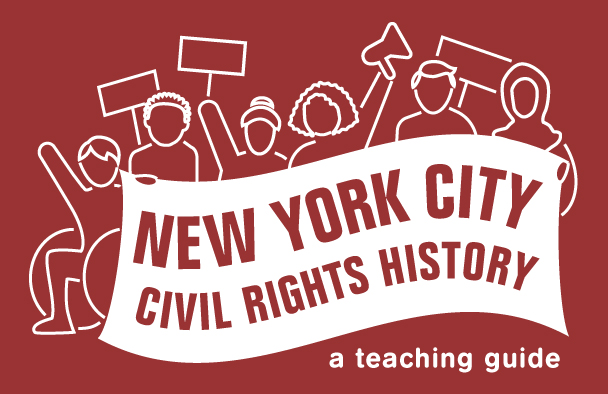You are here:
Albany Evening Journal

Date: May 10, 1900
Caption: This short newspaper article ran in the local Albany paper not long after the “Elsberg School Bill” passed the New York State Legislature. The bill made it illegal for school systems in New York to assign Black and white students to separate segregated schools. The article describes a complex moment of recognition for Mrs. Elizabeth Cisco.

Mrs. Elizabeth Cisco worked for more than five years, with her husband and on her own, to fight for educational equality and desegregation. She pushed schools in the town of Jamaica, and then the board of education in Queens, and then the New York State Legislature, to end school segregation and provide equal opportunity for her children.1 A few days after the New York State Legislature passed a bill ending legal segregation in schools, Mrs. Cisco attended a gathering at a local Black church in the state capital of Albany. The newspaper captured the scene with the small description you see above.
As you read, imagine a sanctuary full of church-goers, most of whom - because the church was part of the African Methodist Episcopal denomination - would have been African American people. They were gathered to celebrate the anniversary of the birth of John Brown, the white abolitionist who led an uprising against slavery in 1859. At this event the congregation was joined by New York Secretary of State John T. McDonough, who was a white man, and were led by Dr. William H. Johnson, a Black man who was one of the leaders of the church.
As Dr. Johnson mentions the “Elsberg School Bill,” which changed the New York State Constitution to prohibit school districts from operating separate schools for Black and white students, he calls attention to Mrs. Cisco. How does he do so? Is he celebrating her? Belittling her? Both? How do those present respond?
-
Carleton Mabee, “Long Island’s Black ‘School War’ and the Decline of Segregation in New York State,” New York History 58, no. 4 (October 1977). ↩︎
Categories: Manhattan, K-12 organizing
Tags: court cases, Black people, women's activism, legislation, newspapers and the media, racist segregation
This item is part of "Elizabeth Cisco Resisting Segregation in Queens" in "Black and Latina Women’s Educational Activism"
Item Details
Date: May 10, 1900
Source: Reprinted in William Henry Johnson, Autobiography of Dr. William Henry Johnson, Respectfully Dedicated to His Adopted Home, the Capital City of the Empire State (Albany, NY: The Argus Company, 1900).
Copyright: Public domain
How to cite: “Albany Evening Journal,” in New York City Civil Rights History Project, Accessed: [Month Day, Year], https://nyccivilrightshistory.org/gallery/albany-evening-journal.
Questions to Consider
- How did Dr. Johnson mock Mrs. Cisco? How did his language perpetuate harm? Do you see racism, misogyny, and/or ableism here? How?
- At this time women do not yet have the franchise - that is, they are not yet able to vote. How does this fact combined with what we know about Mrs. Cisco’s struggle for educational justice and this scene illuminate how various forms of discrimination work together?
- How would you feel in Mrs. Elizabeth Cisco’s position here? What emotions - good or bad, or contradictory - do you think she was experiencing?
References
How to Print this Page
- Press Ctrl + P or Cmd + P to open the print dialogue window.
- Under settings, choose "display headers and footers" if you want to print page numbers and the web address.
- Embedded PDF files will not print as part of the page. For best printing results, download the PDF and print from Adobe Reader or Preview.
